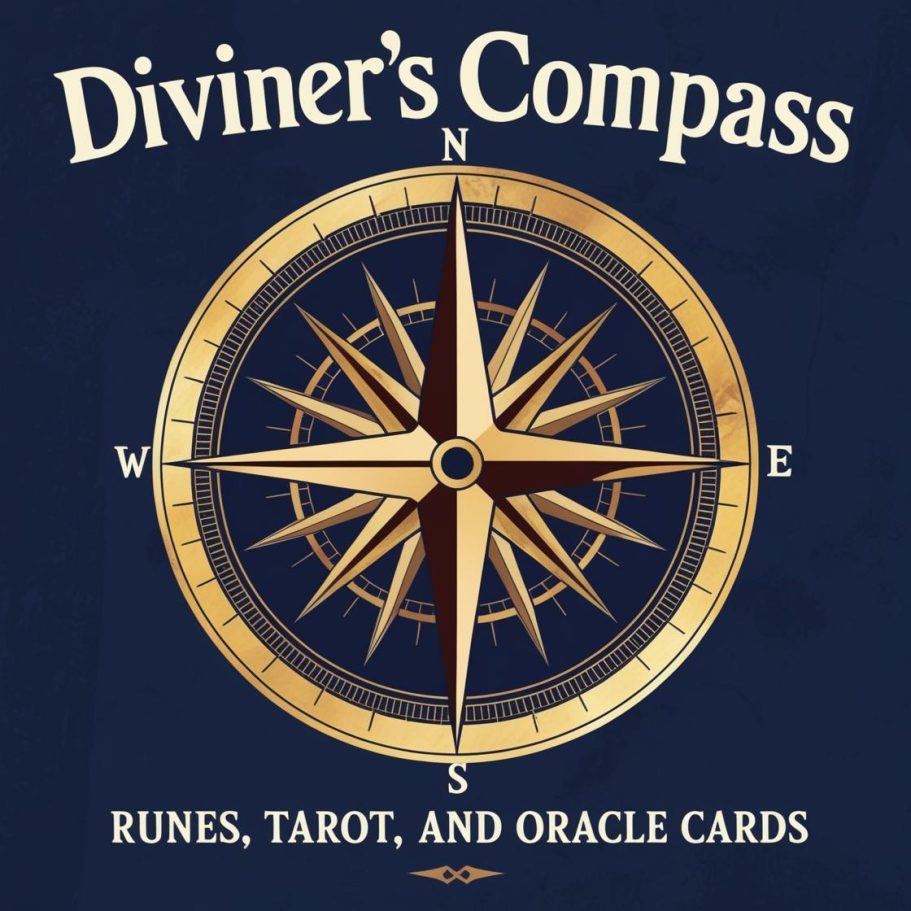
What is the Purpose of a Reading?
Predicting the Future, or Assessing the Possibilities?
Were you brought up on cartoons with crystal ball predictions about a “tall, dark, handsome stranger”, or Hammer Horror movies where the Death Card is prominently displayed as a dire warning? Do you think all card and rune readers are there to give you a glimpse of the future?
Do you idly wonder why people with such abilities don’t just win the lottery a few times as a demonstration of their skill?
I believe such ideas are based on a fundamental misunderstanding of the future and our role in it and mistake the purpose of a reading and how it can help a querent.
Let me start with a fundamental truth: there is no such thing as absolute Free Will. All our lives are bounded by natural laws, our choices, and the choices made by those around us.
- It might sound patronizing, but the most significant barriers to free will are the laws of physics and our own abilities. I can’t fly without artificial aids – however much I might dream. If I jump from a 10th story window, then gravity and the ground will determine my fate.
- The choices we made in the past can sometimes eliminate future choices. I was a state-funded undergraduate at Birmingham University. I can’t now become a state-funded graduate at any other UK university.
- We were born in a certain location because of our parents’ choices. We may have a permanent injury because of a careless driver, or we may be successful at work because of someone else’s support and financial aid.
Rather than thinking of our lives as some isolated golden thread hanging in time and space, we should see ourselves as one part of a complex tapestry of multicoloured strands that loop and weave, both warp and weft, in the historic complexity of life. Our strand may not be long, or particularly impactful – but we will ALL impact at least one other person, even if we aren’t conscious of that impact.
So, what does that mean for us as readers and/or querents – sitting at the table as the Runes are cast or the Cards laid out?
Well, it means we should recognize the future is too complex to grasp, let alone foretell, and I believe it’s a fool’s task to try and use our readings for predictions. We should stop thinking of the future as some roadway with infrequent cross paths and junctions where we stop for advice. Every moment is an opportunity for choice – which is why we should try always to be mindful.
Traditionally, readings have been presented as a way of helping us choose from a limited number of options. I would suggest that rather than seeing ourselves as walking a metaphorical path into the future, we should imagine we are sailing our ship on a vast seascape of time and space.
This changes the model of “providing simple options” to one of “understanding the course and the waters you are sailing in”. A navigator’s chart my include sea depths, shoals, islands, and prominent landmarks, but anyone captaining a large ship into port is obliged to employ a Pilot who knows exactly where the shoals are, how the currents are running at that time of day, and what impact the current winds will have.
The purpose of a reading is thus threefold:
- To assess our course to date and how far that reflects our ultimate goal. As the countryman allegedly said, ‘If I were to be going there, I sure wouldn’t start from here”.
- To clarify what forces are acting on us now (think of the impacts of winds, currents, shoals, land masses, and other vessels).
- To understand what sorts of hindrances we might meet on our journey and how we might react to them and what sorts of course changes we might consider.
In that way, a reading’s real answer might come at the beginning, in the middle, or at the end, and the answer itself might be addressing a far more fundamental issue than the one initially being asked.
As a Reader, my goal is to create a space where the querent can understand themselves and their issue more clearly, and not to impose a fixed ABC format that only focuses on the last few cards.
So what’s the purpose of a Reading? To be open to being challenged at any stage and to see a reading as a dialogue of discovery, and not a simple answer to a simple question about the future.
